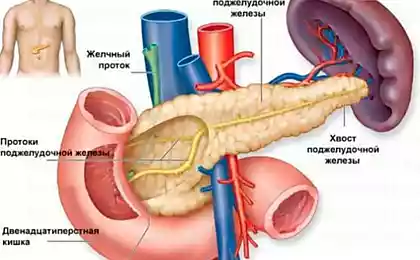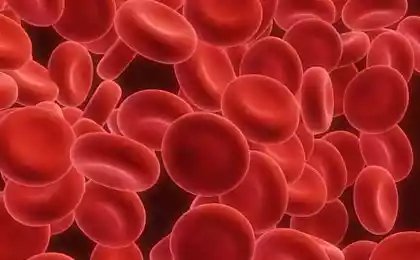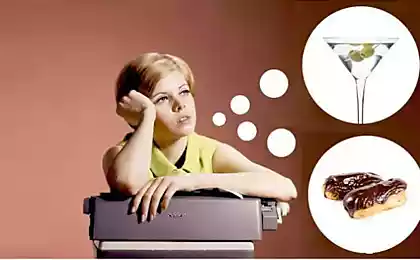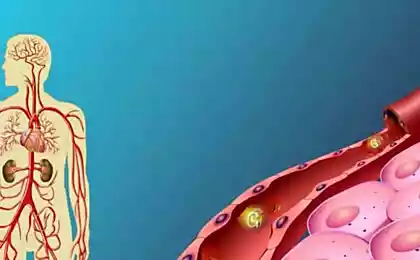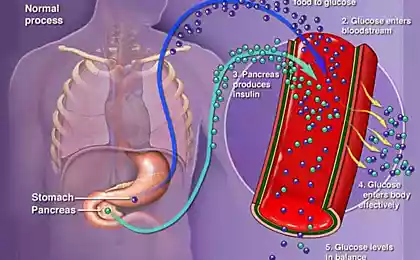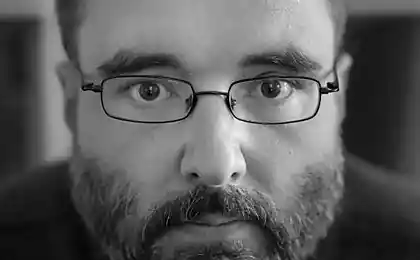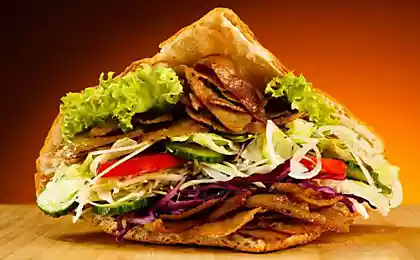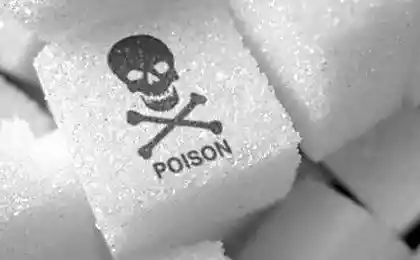168
How low blood sugar affects our thinking
According to the theory of dual systems, which became known thanks to the work of Nobel laureate Daniel Kahneman, low glucose in the human blood leads to a more active use of the rapid and coarse “First system” of thinking in contrast to the more detailed and demanding “Second system”.
In turn, the so-called “ego exhaustion theory” by Roy Baumeister of the University of Florida assigns glucose to the role of a necessary resource, used every time we have to resist temptations.
However, the authors of a new meta-analysis (comparative study), published in the journal Psychological Bulletin, find these claims unconvincing. Their findings are that glucose levels can influence our decisions mainly about food, and nothing more.
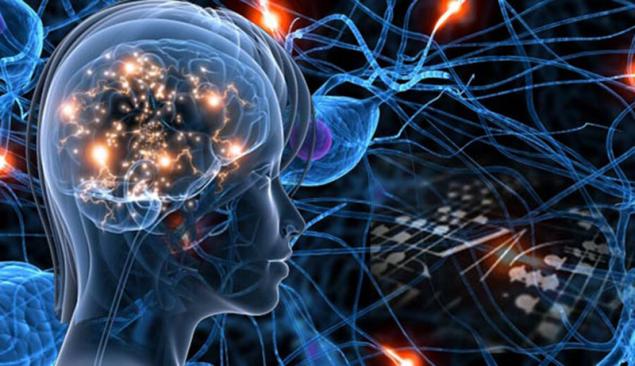
Jacob Orkin of Aarhus University (Denmark) and Robert Kerzban of the University of Pennsylvania (USA) studied the literature on the mechanism of decision-making. They found 36 reports of experiments that directly addressed the effect of glucose on this process. Participants in these experiments received a sugar solution, or were exposed to such effects as inhalation of special aromas that provoke increased glucose release.
The authors carefully studied these articles and summarized all the effects in special tables, distinguishing them by the degree of impact and direction. They found that the effects were very diverse, and often took different directions from experience to experience. However, when all the information was brought into the system around one key factor, a consistent pattern began to emerge. What kind of factor is that? Food.
If we talk about the structure and volume of expenses, including both hypothetical purchases (“how much are you willing to pay for ...”), andReal purchases in the course of everyday shopping, low glucose really increases people’s willingness to spend too much... on food. At the same time, it reduces the desire to buy non-food products. When participants were given a choice between getting a small amount of something immediately and a larger amount after a certain time, the reduced glucose content caused a clear preference for immediate reward when it came to food, and much less in the case of non-food products.
This pattern of experimental results does not support the idea that glucose is the fuel for willpower. She concludes that low glucose represents a signal to our brains that food must be prioritized to ensure continued well-being. This is expressed in the willingness to pay more for food, to make greater efforts for food, and also in the preference for a small amount of food immediately, as opposed to the promise of more later.
This signaling mechanism explains another recently discovered effect, which is that for some cognitive effects there is no need for direct consumption of glucose, just a sense of its taste (for example, by rinsing the oral cavity with a sweet solution). At the same time, the body does not receive any “fuel”, at the same time taste buds temporarily “deceive” the signaling system.
However, Kahneman can still sleep peacefully – the results of the comparative analysis do not contradict his theory of dual systems as a whole, but only refute the claim that glucose plays the role of a switch between fast and slow cognitive processes. A more serious problem is the “ego exhaustion theory,” which is directly related to the idea that willpower is a non-renewable resource dependent on blood glucose.
Based on previous studies of glucose and theoretical positions, some publications recommend strategies such as eating chocolate before tense family discussions, or storing an “emergency supply” of sweets in an office drawer. However, according to a recent meta-analysis, these strategies are unlikely to lead to significant success.
The main consequence of low blood glucose levels is an increased concern about finding food. There are many advances in psychological science designed to help a person form the right daily habits and make intelligent decisions. Therefore, instead of eating sweets before serious mental effort, it is better to read useful literature. published
P.S. And remember, just changing our consumption – together we change the world!
Join us on Facebook, VKontakte, Odnoklassniki
Source: gearmix.ru/archives/25602
In turn, the so-called “ego exhaustion theory” by Roy Baumeister of the University of Florida assigns glucose to the role of a necessary resource, used every time we have to resist temptations.
However, the authors of a new meta-analysis (comparative study), published in the journal Psychological Bulletin, find these claims unconvincing. Their findings are that glucose levels can influence our decisions mainly about food, and nothing more.

Jacob Orkin of Aarhus University (Denmark) and Robert Kerzban of the University of Pennsylvania (USA) studied the literature on the mechanism of decision-making. They found 36 reports of experiments that directly addressed the effect of glucose on this process. Participants in these experiments received a sugar solution, or were exposed to such effects as inhalation of special aromas that provoke increased glucose release.
The authors carefully studied these articles and summarized all the effects in special tables, distinguishing them by the degree of impact and direction. They found that the effects were very diverse, and often took different directions from experience to experience. However, when all the information was brought into the system around one key factor, a consistent pattern began to emerge. What kind of factor is that? Food.
If we talk about the structure and volume of expenses, including both hypothetical purchases (“how much are you willing to pay for ...”), andReal purchases in the course of everyday shopping, low glucose really increases people’s willingness to spend too much... on food. At the same time, it reduces the desire to buy non-food products. When participants were given a choice between getting a small amount of something immediately and a larger amount after a certain time, the reduced glucose content caused a clear preference for immediate reward when it came to food, and much less in the case of non-food products.
This pattern of experimental results does not support the idea that glucose is the fuel for willpower. She concludes that low glucose represents a signal to our brains that food must be prioritized to ensure continued well-being. This is expressed in the willingness to pay more for food, to make greater efforts for food, and also in the preference for a small amount of food immediately, as opposed to the promise of more later.
This signaling mechanism explains another recently discovered effect, which is that for some cognitive effects there is no need for direct consumption of glucose, just a sense of its taste (for example, by rinsing the oral cavity with a sweet solution). At the same time, the body does not receive any “fuel”, at the same time taste buds temporarily “deceive” the signaling system.
However, Kahneman can still sleep peacefully – the results of the comparative analysis do not contradict his theory of dual systems as a whole, but only refute the claim that glucose plays the role of a switch between fast and slow cognitive processes. A more serious problem is the “ego exhaustion theory,” which is directly related to the idea that willpower is a non-renewable resource dependent on blood glucose.
Based on previous studies of glucose and theoretical positions, some publications recommend strategies such as eating chocolate before tense family discussions, or storing an “emergency supply” of sweets in an office drawer. However, according to a recent meta-analysis, these strategies are unlikely to lead to significant success.
The main consequence of low blood glucose levels is an increased concern about finding food. There are many advances in psychological science designed to help a person form the right daily habits and make intelligent decisions. Therefore, instead of eating sweets before serious mental effort, it is better to read useful literature. published
P.S. And remember, just changing our consumption – together we change the world!
Join us on Facebook, VKontakte, Odnoklassniki
Source: gearmix.ru/archives/25602







